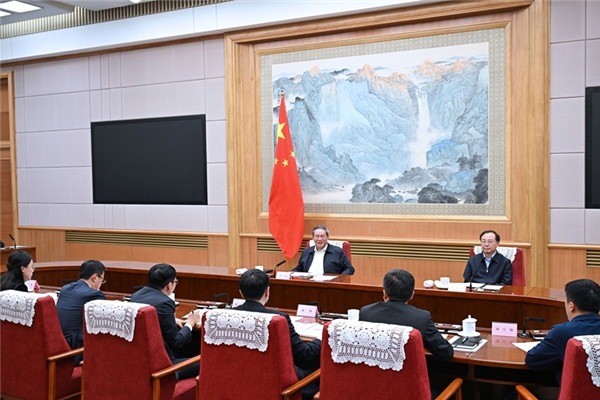Worry easing over developers' offshore debt


Goldman Sachs has also reportedly been adding a "modest amount of risk" through high-yield dollar bonds issued by Chinese developers, citing that the market might have overpriced the true extent of distress.
Yet Neuberger Berman remains careful with weak developer names, Ru said, as many weaker developers may be pushed out of the market amid falling profit margins and accelerated sector consolidation.
"It's not surprising to see some bottom-fishing moves after rounds of sell-offs from July to early October, as now bond yields of some developers are very attractive compared with US high-yield counterparts," said Matt Simpson, a market analyst with GAIN Capital.
"But we believe investors are taking a very selective approach as some names are still highly vulnerable to defaults, and any default event could once again dampen the valuation of the whole asset class," Simpson said.
Some are even more cautious given the unchanged policy objective of real estate deleveraging despite recent fine-tuning, lukewarm property sales that restrict the room for improvement in financing conditions and the likely yet-to-come peak for defaults.
"We think the key is for sales volume to recover, which is the core of the liquidity problem developers are facing right now," said Siu with Credit Suisse. "So far, we haven't seen enough to bring back consumers. They remain skeptical about developers' financial health," he said.
Also, there is uncertainty regarding how far the authorities will fine-tune real estate policy in the near term given the medium-to-long-term objective of preventing a real estate bubble from developing. Such uncertainty has weighed on the sector's valuation, Siu said.
"Overall, deleveraging reform of the real estate sector has not changed. We don't expect 'easing' of the reform," said Iris Pang, chief China economist at Dutch bank ING.
Sonthalia with PGIM Fixed Income said the peak of offshore bond defaults is still on the horizon, though risks for some better-capitalized developers are receding, with Evergrande's heavy maturity schedule through 2022 making a default still expected.
Estimates show that Chinese developers may face greater repayment pressure in the coming quarters. According to Nomura, the global financial services group, quarterly offshore bond repayment of Chinese developers is estimated to almost double from $10.2 billion in the last quarter of this year to $19.8 billion in the first quarter of 2022 and $18.5 billion in the second quarter.
A separate estimate from China Index Academy, a property research institute, showed a total of 356.02 billion yuan ($55.7 billion) in offshore bonds issued by Chinese developers will mature in 2022, with more than half to mature in the first six months of the year.
To meet next year's payment peak, Chinese developers need to make more effort to improve cash flow stability, accelerate home sales, divest themselves of some assets and be more prudent when bidding for land, said Liu Shui, a researcher with China Index Academy.
"Developers should tighten their belt and break any freehanded spending habits formed in the years of breakneck growth," Liu said.




































